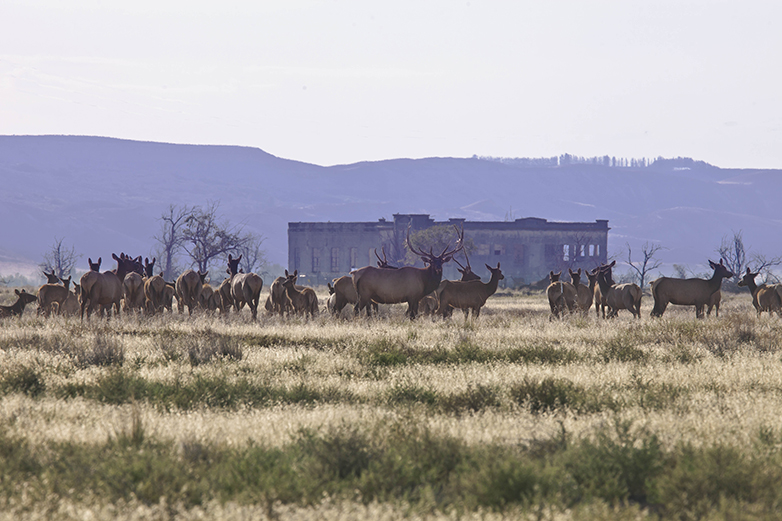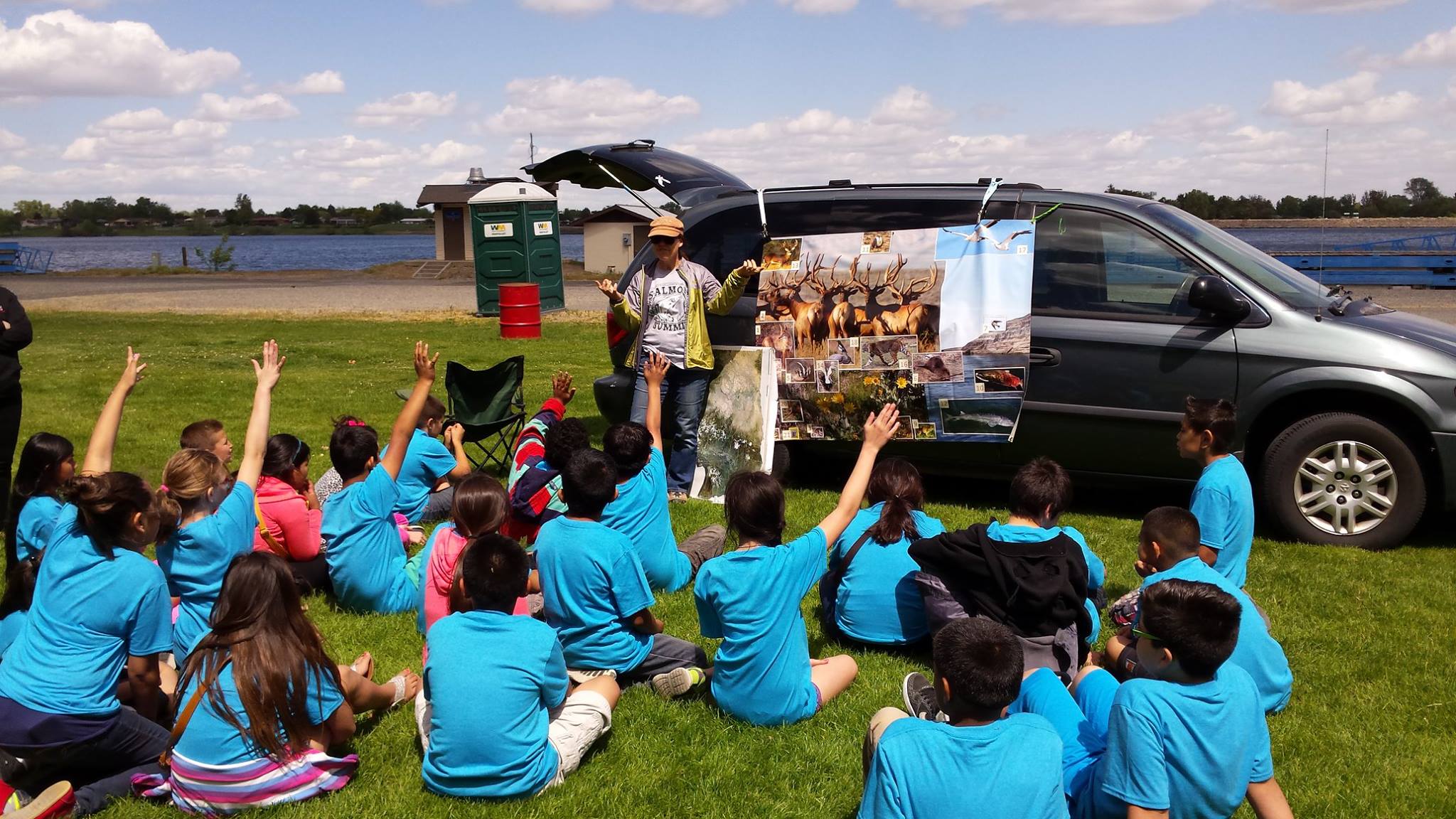Want to learn about Hanford?
The Hanford Site is one of the biggest and most complex environmental cleanup sites in the world. Its cleanup will continue until at least the 2070s. Cleanup requires first of its kind technologies along with processes used at other cleanup sites.
Stories about Hanford’s impactful history, combined with current environmental challenges, create engaging learning opportunities for citizens and students of all ages and interests.
Whether it is the Manhattan Project, protecting the Columbia River, or our engagement with other agencies, Tribes and stakeholders, we'll help you understand how Hanford impacts you, the Pacific Northwest, and the nation.
Did you know?
The Southeast Washington Hanford nuclear waste site is dubbed "one of the most contaminated places on Earth." Here are a few facts about Hanford:
- Hanford is 580-square-miles and the Hanford Reach of the Columbia River borders the site for 52 miles on the north and east.
- It was the primary plutonium production site for America's nuclear weapons program during World War II and throughout the Cold War.
- Vast amounts of contamination left over from plutonium production continue to pollute the environment and challenge state and federal agencies tasked with cleanup.
- The ongoing cleanup effort costs U.S. taxpayers billions of dollars each year.
- Significant progress has been made in cleaning up contaminated soil and groundwater.
- The public must stay engaged to ensure a safe and complete cleanup.
It’s important that the public understands the complexities of the cleanup and why it matters. That's why we make the effort to explain and discuss these challenging issues by visiting your community group, professional association or classroom.
Check out some answers to our most frequently asked questions below.
Presentation Options
Fill out our online form to request a speaker, or contact us with questions.
We offer in-person and virtual classroom visits covering Hanford history and cleanup, as well as interactive and interdisciplinary opportunities for students.
We share the history and science of the Hanford Site and discuss possible future careers.
Hanford provides an ideal subject for social studies, civics, science, and English/language arts classes.
Today's students will inherit Hanford. Educating them about future issues and potential career opportunities is one of our program’s priorities.
We offer in-person and online presentations designed to fit your curriculum needs as well as presentations covering Hanford history, cleanup, career opportunities and other topics.
In addition, our chemists, engineers, or geologists can present on in-depth technical information.
How can you get involved?
- Submit an online comment
- Attend public meetings
- Join our Hanford email list to keep up-to-date on news about Hanford.
The law requires that an opportunity for public participation be offered on major cleanup decisions made at the site. The state and federal agencies involved with the Hanford Site hold public comment periods and hearings where all comments from the public are welcome. We want you to be involved!
Comments are recorded, considered by the cleanup agencies, and responded to in writing. Documents open for public comment are available at the Hanford Information Repositories.
Submit an online comment.
We offer two email lists to keep you informed about nuclear waste cleanup:
- Hanford email list - Get information about public comment periods, meetings, news and more about Hanford cleanup.
- Commercial mixed radioactive waste email list (or the radioactive waste facility regulation list) - Get information about public comment periods, meetings and news about other chemically hazardous and radioactive waste facilities.
Let's Talk About Hanford
In 2021 we began a live virtual series called Let's Talk About Hanford, with a goal of helping those interested in Hanford better understand all things related to the site and its complex nuclear cleanup.
These conversations blend high-level easy-to-understand presentations and conversations with attendees about Hanford topics, ranging from specific cleanup projects and history of the site to the Hanford Reach habitat and wildlife that call it home.
We gear these virtual discussions toward those unfamiliar with Hanford, those who want a refresher, or to expand existing knowledge about Hanford. We start each event with a short high-level presentation on that day's topic, followed by a live Q&A with those watching.
Our most recent event, held Sept. 18, was about the history of Latinos/as at the Hanford Site.
For this conversation we invited Drew Gamboa, a history PHD student at Washington State University (WSU).
Watch the recording of that conversation on our YouTube channel or on our Facebook page.
Contact information
Ecology's Nuclear Waste Program:
Email us, call us at 509-372-7950, or visit us on Twitter and Facebook.
Media inquiries:
Ryan Miller
Communications Manager
Ryan.Miller@ecy.wa.gov
509-537-2228
Request a speaker:
Ben Prueitt
Community & Outreach Specialist
Hanford@ecy.wa.gov
509-372-7950





